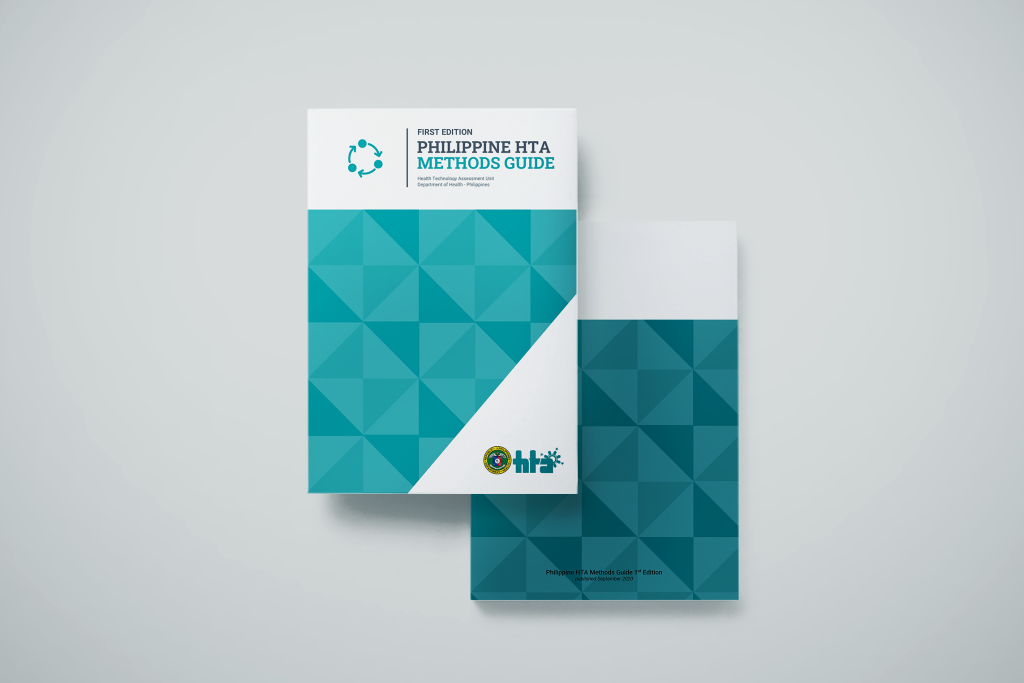
The Philippine HTA Methods Guide is a vital document that aims to provide mandatory guidance to researchers in conducting HTA. Specifically, it endeavors to provide broad guidelines in the conduct of HTA and its domains in assessing the clinical, economic, ethical, legal, social and health systems implications of a specific health technology and, the production of standard HTA reports for healthcare decision makers and other target audiences in the health system.
The Philippine HTA Methods Guide is an annex of the Administrative Order with the title “The New Implementing Guidelines on Health Technology Assessment to Guide Funding Allocation and Coverage Decisions in support of Universal Health Care”.
The Philippine HTA Methods Guide can be accessed here: http://bit.ly/HTAMGPhilippines.
With the aim to further improve the standardization of HTA Methods in the context of the Philippine setting, HTA Philippines seeks to develop specialized methods guides for the different types of health technologies:
- Philippine HTA Methods Guide on the Assessment of Clinical Equipment and Devices (CED), co-developed with the USAID Medicines, Technologies, and Pharmaceutical Services (MTaPS) Program
- Ongoing Development:
- Philippine HTA Methods Guide on the Assessment of Preventive and Promotive Health Technologies (PPH)
- Philippine HTA Methods Guide on the Assessment of Traditional, Complementary and Integrative Medicines (TCIM)
- Philippine HTA Methods Guide on the Assessment of Digital Health Technologies (DHT)
- Philippine HTA Methods Guide on the Assessment of Medical and Surgical Procedures (MSP)
- Philippine HTA Methods Guide on the Assessment of Health Technologies for Rare Diseases
HTA Philippines also aims to provide guidance documents on specific processes related to assessments, such as the Philippine HTA Guidance Document for the Use of Real-World Evidence (RWE), co-developed with the University of the Philippines National Institutes of Health – Institute of Clinical Epidemiology
This overview shall be kept up-to-date.
